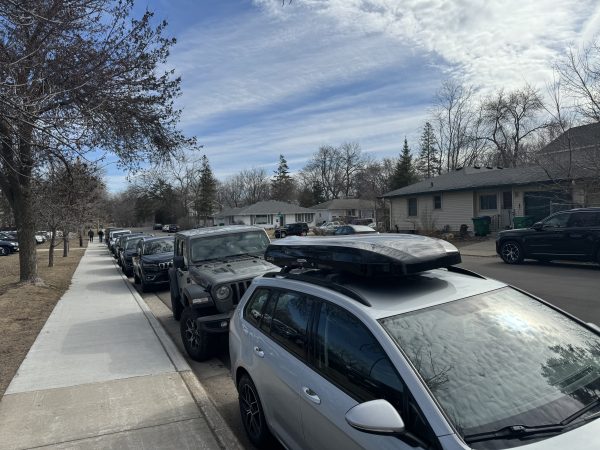Staff Editorial: Students not entirely to blame for poor class performance
A purpose of our education is to cultivate students capable of recognizing their shortcomings, owning up to their mistakes, and gaining a strong sense of self discipline. All of this is not possible if teachers actively discourage this advancement by not taking responsibility for their own faults.
Classwide poor performance should raise multiple red flags in regards to a teacher’s ability to properly prepare their students for exams.
— KE Staff
As high school progresses, exams are more heavily weighted, homework loads pile higher, and expectations put upon students skyrocket. Some students thrive in this constantly evolving environment while others crack under pressure. While many are under the impression that students fall behind as a result of their own negligence, this is not always true.
It seems that now more than ever the school hallways are filled with talks of students performing poorly on heavily weighted tests and quizzes and therefore having an overall grade reflective of that. However, it is often not just one student vocalizing their poor performance on exams; occasionally it is a majority of a class expressing their collective failure of the same exam.
Classwide poor performance should raise multiple red flags in regards to a teacher’s ability to properly prepare their students for exams. Instead it only evokes assumptions that students lack the responsibility and initiative to learn effectively in class and study thoroughly at home. Although some students’ inadequate grades can be attributed to their personal study habits, when the majority of students do poorly after what is perceived as proper preparation, it’s safe to assume that the fault does not fall on the students alone.
Students’ responsibility to study effectively for their exams should be reciprocated by teachers preparing them with the means to do well, and if they still fail, the curriculum must be enforced again in a more effective way.
— KE Staff
We will never be able to properly grasp the concepts taught in class if they are not reinforced properly, even after we fail. If these lessons are not fortified we cannot be expected to further advance in our studies, fully apprehend the purpose of what we learn, and score highly on standardized tests and finals. All of these aspects add up in college admissions and can partially be dictated by educators’ teaching styles and course of study. Teachers need to stop disregarding poor performance totally as a result of the students’ efforts, accept that there must be a flaw in the curriculum, and make the changes necessary for all parties to succeed. If we fail we must try, try again––not continue in our lessons.
The purpose of this is not to criticize teachers. In fact, teachers deserve to be valued and lauded more by society for undertaking the challenges their careers entail. However, the red flags that have arisen in students’ performance and preparation need to be acknowledged.
Students’ responsibility to study effectively for their exams should be reciprocated by teachers preparing them with the means to do well, and if they still fail, the curriculum must be enforced again in a more effective way. This reciprocation can uphold the exceptional standards of our college preparatory education.
















































